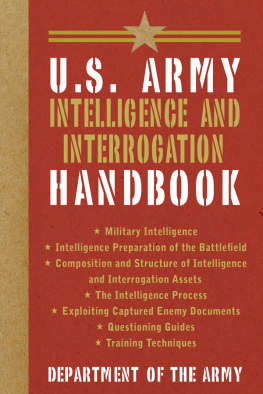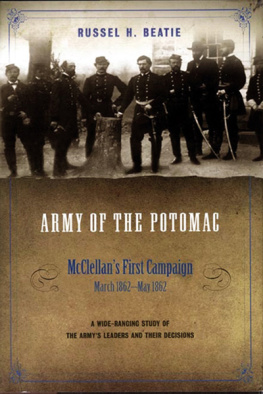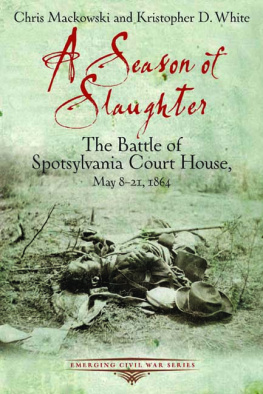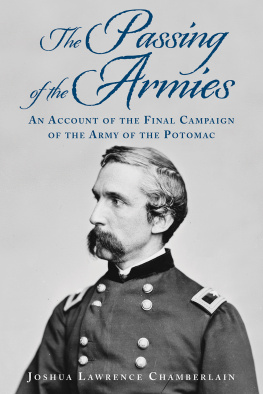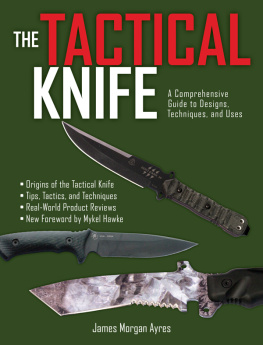
This edition is published by PICKLE PARTNERS PUBLISHINGwww.picklepartnerspublishing.com
To join our mailing list for new titles or for issues with our books picklepublishing@gmail.com
Or on Facebook
Text originally published in 2004 under the same title.
Pickle Partners Publishing 2014, all rights reserved. No part of this publication may be reproduced, stored in a retrieval system or transmitted by any means, electrical, mechanical or otherwise without the written permission of the copyright holder.
Publishers Note
Although in most cases we have retained the Authors original spelling and grammar to authentically reproduce the work of the Author and the original intent of such material, some additional notes and clarifications have been added for the modern readers benefit.
We have also made every effort to include all maps and illustrations of the original edition the limitations of formatting do not allow of including larger maps, we will upload as many of these maps as possible.
TACTICAL INTELLIGENCE IN THE ARMY OF THE POTOMAC DURING THE OVERLAND CAMPAIGN
By
MAJ Todd T. Morgan
TABLE OF CONTENTS
Contents
TABLE OF CONTENTS
REQUEST FROM THE PUBLISHER
ABSTRACT
This study examines how Lieutenant General Ulysses S. Grant and the Army of the Potomac used tactical intelligence during the Overland Campaign. Although Grant did not achieve his operational objective to defeat General Robert E. Lee in the field, tactical intelligence allowed him to continue the operational maneuver of the Army of the Potomac, which later contributed to the eventual defeat of Lee in April of 1865. The examination of tactical intelligence in the Army of the Potomac covers the period of 4 May to 12 June 1864. It encompasses campaign planning and preparation, as well as the battles of the Wilderness, Spotsylvania Court House, North Anna River, and Cold Harbor. The study combines a general contextual overview of the campaign and battles with a focused discussion and analysis of tactical intelligence collection and use. The study also includes background discussion of influences that contributed to the lack of intelligence functions in the War Department and the Union Army, the intelligence organizations that emerged in the Army of the Potomac, and description of the primary forms and methods of tactical intelligence collection used during the campaign.
ACKNOWLEDGMENTS
My thanks and gratitude are extended to the members of my MMAS thesis committee, LTC Jim Burcalow, Ken Gott, and Dr. Don Wright for their patience and perseverance as they guided me through this process. Without their assistance and individual perspectives, but uniformed in guidance, the completion of this endeavor would not be possible.
I also owe my thanks to my parents, LTC, USA, Retired, Jerry T. and Betty Morgan. Both provided over long distance their ear and their support as I struggled through the research and writing of this thesis. I am especially indebted to my father for his sage advice and the use of his extensive library of military history.
Finally, I would be remiss if I did not thank my wife, Corey, and my daughter, Madeline for their patience and understanding. Their ability to not only support but also endure the nights and weekends spent away from them, yet in the same house as I absorbed myself in researching and writing this thesis, is the reason for my successful completion of this project. Without them, and their love, I know I would have failed.
ACRONYMS
BMIBureau of Military Information
EPWEnemy Prisoner of War
HUMINTHuman Intelligence
IPWInterrogation of a Prisoner of War
OPSECOperations Security
OSINTOpen Source Intelligence
R&SReconnaissance and Surveillance
SIGINTSignals Intelligence
CHAPTER 1 INTRODUCING THE OVERLAND CAMPAIGN
From the earliest times, military leaders have always sought information of the enemy, his strengths, his weaknesses, his intentions, his dispositions. {1} John Keegan, Intelligence in War
The necessity of procuring good intelligence is apparent and need not be further argued. {2} General George Washington
Introduction
The Overland Campaign lasted approximately forty days and at the end, the troops of the Army of the Potomac were tired but triumphant while General Robert E. Lees Army of Northern Virginia remained undefeated. For the Army of the Potomac this was its sixth campaign and the bloodiest month since the start of the war. {3} Horace Porter, then a captain and aide-de-camp on Lieutenant General Ulysses S. Grants staff wrote:
From the 4th of May until the end of June there had not been a day in which there was not a battle or skirmish. The record of continuous and desperate fighting had far surpassed any campaign in modern or ancient military history. {4}
The Overland Campaign, which occurred from 4 May to 12 June 1864, was the first part of a series of battles and movements that eventually lead to the defeat of Lee in April of 1865. It stands out from other campaigns of the Civil War because those who fought it received little rest, marched continually in both night and day, conducted night attacks, used little artillery preparation before assaults, and constantly used entrenchments. {5}
When planning the Overland Campaign, both Grant and the Army of the Potomac faced the fact that Lee and his Army of Northern Virginia had not lost a single battle fought in Virginia. Despite his smaller force, Lee had the advantage of interior lines, knew the terrain, and could assume a nearly constant defensive posture with troops that could entrench quickly. Even so, Lieutenant General James Longstreet cautioned an over confident subordinate officer about Grant when he said, I will tell you that we cannot afford to underrate him and the army he now commands for that man will fight us every day and every hour till the end of this war. {6} Grant, unshaken by Lees reputation and the Army of the Potomacs mediocre history, commenced the campaign that he hoped would end the war. The battles of the Overland Campaign depleted both soldiers and resources but not the resolve of either side. {7} In the end, Grant proved Longstreet correct.
Intelligence in the Union Army
The US Civil War marked a period of development and implementation for new technology, weapons, concepts and ideas for employment on the battlefield. In The Evolution of Weapons and Warfare , Colonel T. N. Dupuy described the Civil War as one of the most important conflicts in the 1800 to 1875 period. He added, many historians have termed the American Civil War the last of the old and the first of the modern wars. {8}
One of the Civil War contributions to modern warfare that did not take root in the US Army until World War I was the function of intelligence. In the history of the US Army before the Civil War, commanders had used various means and methods to collect intelligence to assist their decision-making. When General George Washington commanded the Continental Army, he served as his own intelligence chief.
Not until after the Civil War had begun did organized and dedicated intelligence functions appear in the Union field armies. The two most noted intelligence organizations both appeared in the Army of the Potomac. Major General George C. McClellan, who organized and served as the Army of the Potomacs first commander, used a hired civilian detective service that proved ineffective. Later, Major General Joseph Hooker commanded the Army of the Potomac and created the Bureau of Military Information (BMI). Organized in the early spring of 1863, the BMI also provided intelligence to Hookers successor, Major General George Gordon Meade, and continued to do so until the end of the war. In the planning and preparation for the Overland Campaign, the BMI played a pivotal role in aiding Grant to make the decision to cross the Rapidan River on Lees right in the east. When the campaign began, however, the BMI found itself minimized in its role to provide intelligence to Meade and Grant.




